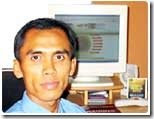Successfully lead and implement your strategic business initiatives in a global environment. The impact of globalization on businesses of every type and size is being increasingly felt on a daily basis. The organizations that succeed in this perpetually changing global arena are those that develop people who can lead and implement business strategies across borders, cultures and a host of logistical and legal complexities. This highly interactive seminar will help you focus and refine your own competencies in this area, providing skills and tools to develop a real-time global mindset. How You Will Benefit - Ensure effective local execution of global business strategies in rapidly changing, cross-cultural environments
- Align global and cross-cultural project teams to leverage distinct business advantages
- Identify new and constantly emerging global trends that will impact your organization
- Practice managing, leading, and establishing influence across cultures through case studies
- Learn to establish and expand your own and your organization’s reputations in both local and global commerce
What You Will Cover - The highly challenging 21st century global business environment and its impact on your organization and teams
- Understanding how cultural differences impact the success of global leaders
- Ensuring effective local implementation of your global business strategies
- Managing, developing and communicating with key players across cultures
- Leading your international management teams to successfully implement business strategies
- Successfully influencing negotiations and conflict resolution
- Understanding the implications of international laws and regulations on global commerce
Who Should Attend CEOs, vice presidents, directors, division managers and other senior and midlevel managers whose organizational responsibilities include oversight and/or implementation of global and cross-cultural business enterprises.
Extended Training Description Learning Objectives - Effectively Initiate and Deploy Business Strategies in Different Parts of the World at the Same Time
- Effectively Lead and Manage People in Other Parts of the World
- Effectively Build an International Team with Team Members in Multiple Countries
- Keep Global Project Teams Aligned and Leverage Cultural Differences to Create a Competitive Advantage
- Think and Act with a "Global Mindset"
Understanding Cultural Differences and Their Impact on an Organization - Explain How Misunderstandings Arise as a Result of Cultural Differences
- Define Culture
- Describe Where Cultural Differences Appear in the Workplace
- Recognize the Difference Between Stereotypes and Generalizations
- Explain Why "What Makes a Good Leader" Is Different Across Different Cultures
- Anticipate Challenges Associated with Implementing Business Initiatives in Several Countries at the Same Time
Communicating Effectively with Culturally Different People in Different Parts of the World - Describe Cultural Differences That Occur in Nonverbal Communication
- Describe Cultural Differences That Occur in Verbal Communication
- Assess Interactions with Others in the Workplace as Either High Context or Low Context
- Anticipate Challenges Associated with the Concept of Time When Implementing Business Initiatives in Several Countries at the Same Time
- Recognize That Different Cultures Use/Prefer Different Communication Tools
- Anticipate Challenges Associated with Communication Tools When Implementing Business Initiatives in Several Countries at the Same Time
- Describe Cultural Differences in Emotion Displayed in the Workplace and Anticipate Challenges When Implementing Business Initiatives in Several Countries at the Same Time
Becoming a Successful Multicultural Leader - Describe the Impact That Cultural Differences Have When Giving and Receiving Feedback in the Workplace
- Define Hierarchy
- Describe the Impact That Hierarchy Has in the Workplace
- Assess How Hierarchical Someone Is in Your Workplace
- Describe Ways to Adapt Your Behavior and Communication Style to Optimize the Relationship Between You and Individuals Who Are More or Less Hierarchical Than You
- Describe Cultural Differences in the Concept of Trust
- Describe How to Coach Individuals from Different Cultural Backgrounds
Building Strong International Teams to Successfully Implement Business Strategies - Describe Cultural Differences in How People Approach Teamwork
- Point Out Differences Between Individualistic Groups and Collective Groups
- Recognize That the Concept of Teamwork and the Role of Team Member Mean Inherently Different Things to Different People in Different Parts of the World
- Assess How Individualistic or Collective Someone Is in Your Work Environment
- Adapt Your Behavior and Communication Style to Optimize the Relationship Between You and Individuals Who Are More or Less Individualistic Than You
- Discuss the Key Components Involved in Building an International Team
Establishing the Presence of Global Leadership - Explain the Concept of Risk Tolerance and Describe the Impact It Has in the Workplace
- Assess How Risk-Tolerant/Risk-Averse Someone Is in Your Work Environment
- Adapt Your Behavior and Decision-Making Style to Optimize the Relationship Between You and Individuals Who Are More or Less Risk-Tolerant Than You
- Describe the Differences in How People Approach Change, Respond to Change and Manage Change in Different Parts of the World
- Describe the Differences in How People Resolve Conflict in Different Parts of the World
- Identify Ways to Influence Culturally Different People
- Describe Your Leadership Style and Identify What You Need to Change to Increase Your Success as a Global Leader
Creating a Competitive Advantage in the Global Marketplace - Describe How to Leverage the Benefits of Cultural Differences to Identify Unique Innovation Potential
Training Course Seminar Workshop Provider Download Training Catalog 2009 |  |
Instructor
Schedule
| | September 7-9, 2009 | | | 3 days |
Venue
Tuition Fee
| Rp. | 4.800.000,- | | | per participant, excluding accommodation & tax. |
Registration
| | Send by email -or- fax to: | PT. FOCUS TRACO INDONESIA
Wisma Pakuan, Jl. Pakuan 12
BOGOR – 16143
|


Tidak ada komentar:
Posting Komentar